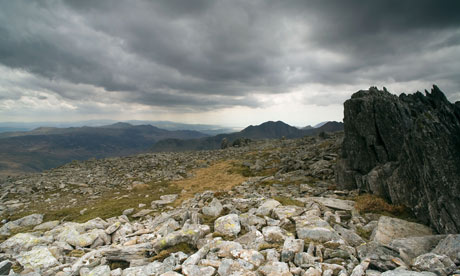Weatherwatch: The many Welsh words for rain
- guardian.co.uk,
- Article history

Welsh words for rain tend to be very descriptive. Photograph: Marc Bedingfield /Alamy
=
The Inuit are said to have dozens of words to describe snow conditions from the state of the stuff lying on the ground to the speed and direction from which it is falling. Perhaps this is not surprising considering community survival used to depend entirely on the correct interpretation of weather conditions.
Less well known is the number of Welsh words for rain.
-
These tend to be very descriptive and anyone who has camped regularly in Wales will be familiar with at least some of the following conditions. What is perhaps most surprising is that most of them are single descriptive words for almost all states of precipitation from drizzle to pouring and worse.
-
Although there are words for "spotting", "big spaced drops", "short sharp showers", it is for the more serious rain that the language comes into its own. So there are different single words that translate as "pouring very quickly," "throwing it down" and "fierce rain."
-
Moving up a gear at least in the quantity of water coming down there are additional single words that mean "sheets of rain", "fountain rain", "beating rain", "bucketing rain" and "maximum intensity rain." The Welsh also have descriptive phrases.
-
The English "It is raining cats and dogs" has the equally baffling but perhaps more colourful Welsh equivalent "It's raining old women and sticks." Unsurprisingly Welsh has fewer descriptive words for sunshine but it is encouraging to know they do exist for both sunbathing and scorching hot.

No comments:
Post a Comment